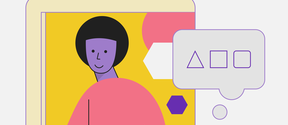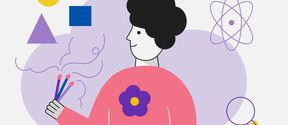Making a difference with your difference
Staying true to yourself is one way to drive your career and quietly resist the dominant culture and persistent inequalities.

The business case for diverse talent is clear. No team would function ideally if all its players were exactly alike. In fact, difference is the essence of organizing collaboration, as professor Janne Tienari pointed out in his recent guest lecture at Aalto University.
Unfortunately, our differences are not always valued or treated equally. Some differences become the ideal norm, resulting in discrimination and exclusion of others. What if you are the one that’s different from the norm - in your field, team or organization? How can you design your career so that you can make a difference in your career despite or with your difference?
Culture change is slow
The starting point is to recognize that inequality and exclusionary practices persist.
Just because Finland is #2 in the Global Gender Gap report of the World Economic Forum, for example, does not mean that gender no longer matters in career. Occupations remain highly gendered, and organizations often vertically segregated: the further up you go the less diversity there is. Ethnicity, race, sexuality, disability, age and other social categories continue to be sources for discrimination particularly in recruitment and even more so when such categories intersect.
Although many employers are investing in equality, diversity and inclusion efforts, cultures and structures change slowly. There are so many factors at play: unconscious bias, stereotypes, exclusionary practices, hidden norms and homosociality – the human tendency for preferring to be surrounded by others like them.
In the meanwhile, you need to take care of yourself.
Career design for minorities: 3 + 1 ideas
The following ideas can help you in preparing and managing your career as a minority (or anyone else for that matter!).
-
Awareness
Look at the structures and practices of your field or organization. Pay attention to the daily practices that create and maintain the differences between groups of people and the way they are valued. Who gets heard? Asked for projects? What is considered the right (but not necessarily the best…) way to do things? Everyday practices are taken for granted and assumed neutral even if they are not.
Identify the narratives about being a professional in your field. For example, what makes a competent electrical engineer, art educator, architect, investment banker…? The image of an ideal professional is not always equal to the capacity for actual performance on the job.
Narratives and practices are not easy to recognize. That’s why, if you are different from the norm, you can get the feeling that you just don’t fit in or just not cut out for the work. Awareness helps you see where the problem lies and realize that there is no need to change careers or assimilate to the dominant culture. As one minority eningeering student in our career workshop shared:
“It dawned on me that I don’t need to become one of them. I need to focus on what matters to me and let that drive my professional path.”
-
Aspirations
Clarify your own narrative. If you do not fit or want to conform to the norm, you need other guideposts for your path. Identify your unique strengths and values to guide your way. What is important to you? What kind of a difference do you want to make? Knowing and honoring your unique aspirations helps you find your own way and empower your efforts despite the dominant culture. At the same time, it is your compass in creating a path towards meaningful work. You need to tell your own story otherwise you are just wasting your talent. Also, the better you know your aspirations the easier it is to stand out in the job market.
-
Allies
Connect with others. Being different is not easy. We need others to feel that we belong and are valued. So connect with your peers at the university, in your organization or through professional groups outside your institution. Sharing experiences and supporting each other help in dealing with the challenges but also in creating a network that can support you in your career. In addition to peers, find people who have walked the path before you. Find them on social media or get a seasoned professional as a mentor.
+ Activism
Be a change agent, to the extent that you can. Working for equality and inclusion is not an easy task. Exposing bias and exclusionary practices can turn against the messenger. That’s why it is a good idea to revisit tip #3 and join the collective efforts. Activism can also be of a more quiet nature. You can always inspire change in the dominant culture by just being you.
Stay true to yourself.
Author
Kirsi LaPointe, D.Sc., works as a senior advisor in the Career Design Lab at Aalto University. She develops and facilitates new career programs to support students and alumni in designing sustainable careers. Her expertise focuses on career transitions, identity and meaningful work, and she is particularly interested in creative approaches for developing careers and wellbeing.
Show other posts from this blog

Itsensä johtaminen ja uramuotoilu - taitoja, joilla rakennat kestävää ja merkityksellistä työelämää
Työelämän murros nostaa esille kaksi metataitoa, itsensä johtamisen ja uramuotoilun, joiden hallinta on edellytys merkitykselliselle uralle.
Työ muuttuu – pysyykö ajattelumme mukana?
Teknologian muuttaessa työntekoa suurin haaste on ajattelullinen. Kun päästämme irti vanhoista oletuksista, luomme tilaa uuden oppimiselle.
Strengths as a pathway to meaning & wellbeing
Skills and competencies are a key component of your CV but a sustainable career needs to be strengths-based.